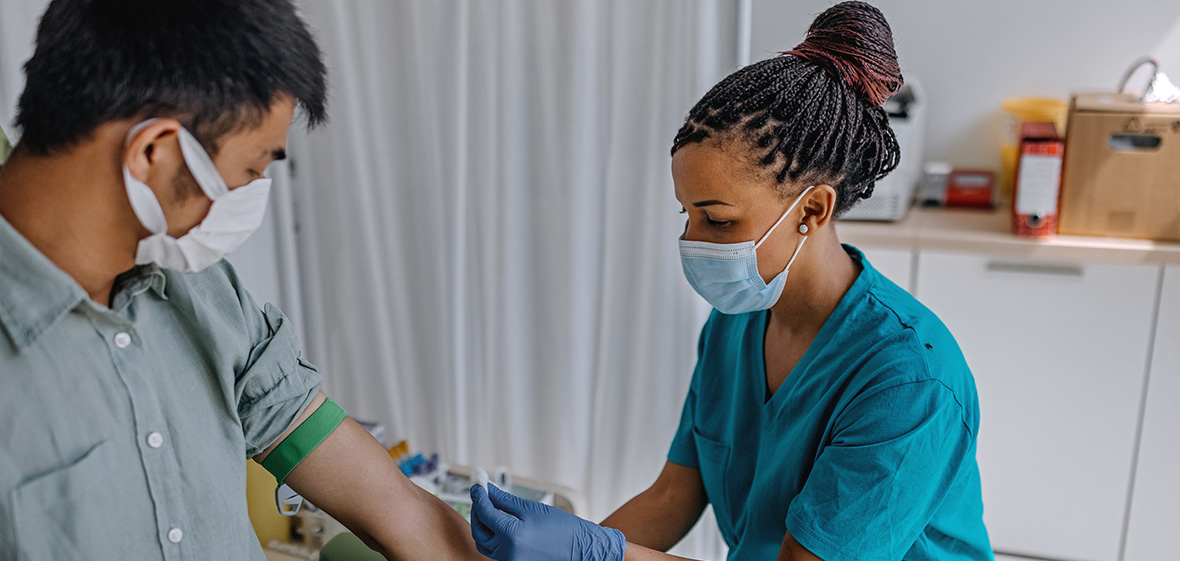
At various points of your life, you may need to get laboratory (lab) tests done to check the status of your health. For a lab test, your provider may collect a sample of your blood, urine, a different body fluid or part of your body’s tissue. Lab work can be extremely useful for your provider to find out if you have a medical condition or if your body is responding to treatment for your condition, and it is a good form of preventive screening.
Learn The Type of Work and Your Instructions
Make sure you ask your provider about the specific lab work that will be performed, how the sample will be collected and what will be tested. This will help you get all the information and ensure nothing important gets missed. You can even get an estimate of how much the procedure will cost.
It is important to let your provider know about all your prescribed medications and any vitamin or mineral supplements you take. Depending on the type of lab test being performed, your provider may tell you to stop taking a medication or supplement for a certain amount of time before the test.
You should also follow every instruction your provider gives you. If there are any instructions you do not follow, it is important to tell your provider or the professional who is conducting your lab test. Your honesty will help the provider or lab professional know if they need to change anything regarding the lab work, because even if you don’t follow one instruction exactly, it can impact your lab results. For example, if you continue taking a medication you were supposed to temporarily stop taking before your lab work, it could affect the amount of sugar that is in your blood.
Depending on the lab work you need, your provider may tell you to fast. This means that before your lab work, you will not be able to drink or eat anything besides water several hours before your test, or overnight, to prevent the vitamins and minerals from food or drink from being absorbed in your blood.
Make sure to get clear instructions from your provider about whether you need to fast and for how long. Some lab tests may require you to decrease your food intake, not eat certain foods, or not drink alcohol instead of fasting. The calcitonin test, triglycerides test, cholesterol levels test and blood glucose test usually require fasting. The creatine test and 5-HIAA test usually require avoiding certain foods.
Also, some lab tests may require you to follow other instructions. For example, your provider could tell you to not do intense exercise, not have sex or not smoke or drink alcohol before your lab procedure.
Your provider could also tell you to drink more water than normal, which is common for urine tests that may require you to drink water 15 to 20 minutes before the test to ensure you will be able to urinate. Drinking more water is also a good practice to follow before a blood test because it can help your blood flow better and get collected faster.
The cortisol test is one lab test that may require specific instructions such as resting, fasting or avoiding brushing your teeth for a specific amount of time beforehand. Also, the fecal occult blood test may require stopping medications or avoiding specific foods. If you’re a woman getting a pap smear done, your provider could tell you not to use a douche or tampons, or engage in sexual activity, for a day or two beforehand.
Other Tips for Helping Your Procedure Go Smoothly
You may find that taking a few deep breaths and taking time to relax before and during your lab work will help you be less anxious. It can also help to talk to the person collecting your blood to distract yourself from the procedure.
If your lab work does not require fasting or limiting food intake, you may want to eat one or two hours before your test to avoid getting lightheaded. If you are nervous about the procedure, if you are feeling lightheaded, or if you have a history of fainting, tell the phlebotomist or nurse performing your lab work.
Also, if you are getting blood work done, let your provider or professional performing the procedure know if you have had several blood draws before. This can affect how easy it is for the phlebotomist to find a good vein for drawing the blood, but they could use a smaller needle to help.
When Your Procedure is Finished
After your lab procedure, you can reward yourself by eating a healthy snack, or doing something relaxing or fun.
If you had blood or fluid drawn, you can usually take your bandage or gauze off one hour after. You can put on a different bandage if you start bleeding after taking the bandage off. Any bruising should disappear a few days after the procedure.
Your provider will be able to answer any specific questions or address any worries you have regarding your lab work before, during or after your procedure. If you need a provider, UofL Health – UofL Physicians can help. Schedule an appointment by calling 502-588-4343.









